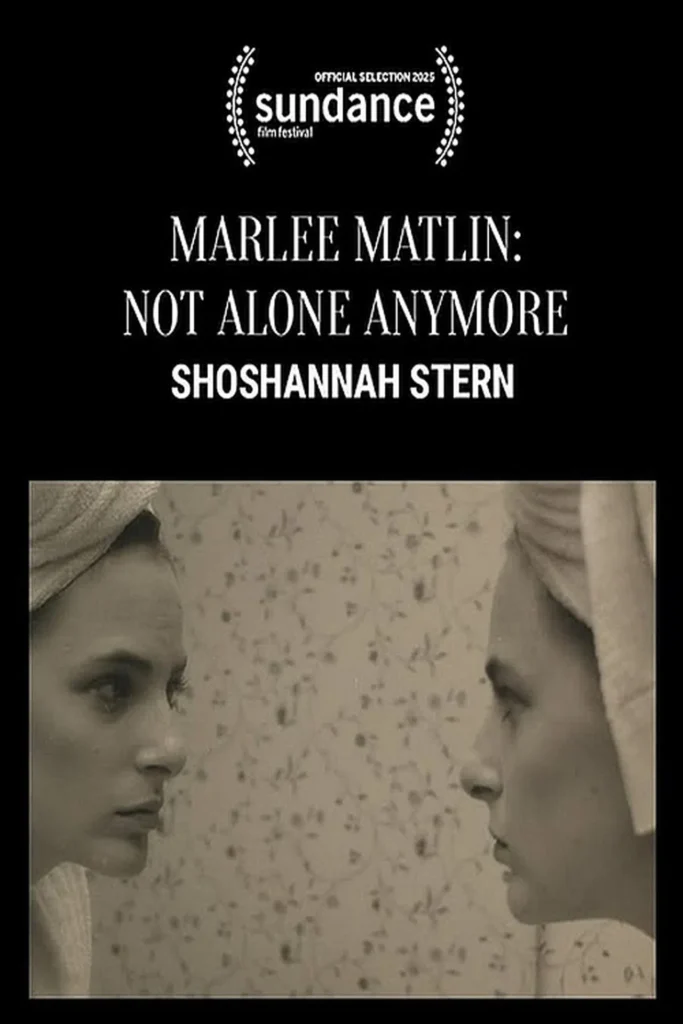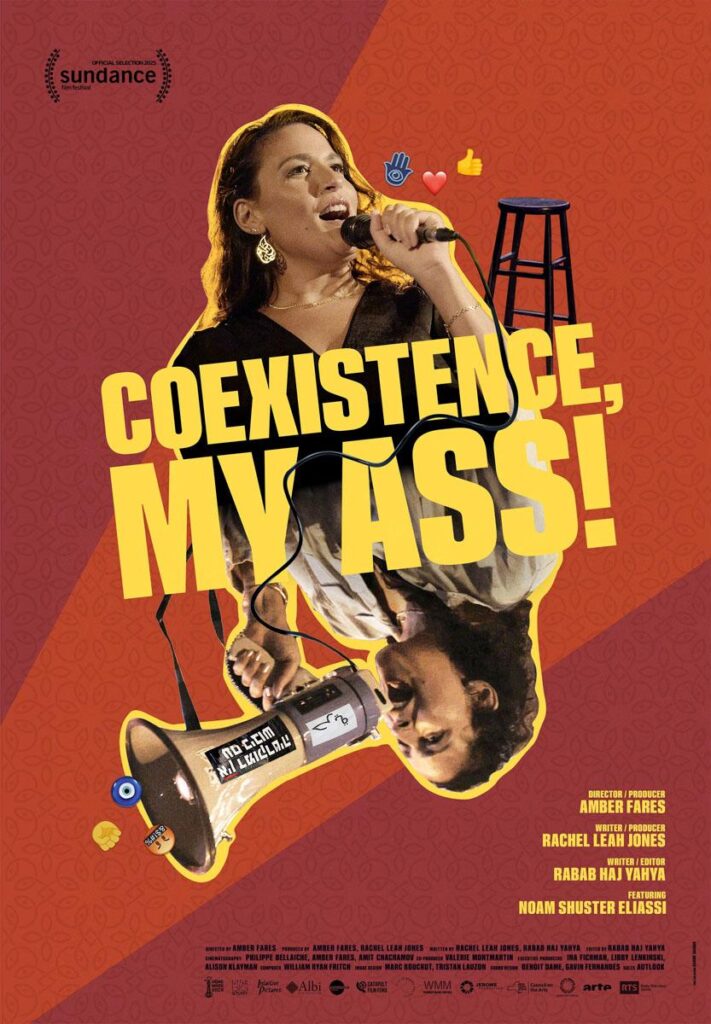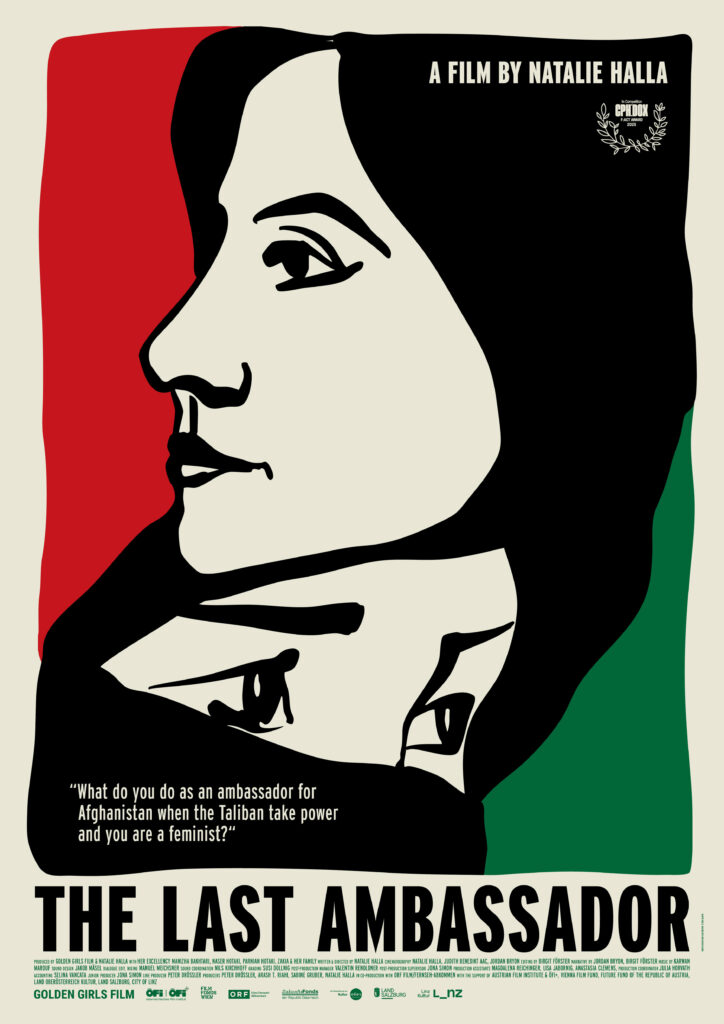As North America’s largest documentary film festival unfolds from April 25 to May 5, I’ll cover a selection of standout titles daily, highlighting films that resonate with contemporary global issues and compelling personal stories. You can follow my English-language capsule reviews below, which are updated each day of the festival. In addition, my French-language radio segment Chronique de Cinéma on Dans la Mosaïque (CBC/Radio-Canada) will be dedicated to the festival over the next two weeks, offering commentary and reflections for francophone audiences in Toronto and beyond.

Marlee Matlin: Not Alone Anymore (2025)
Directed by Shoshannah Stern
Directed with sensitivity and insider insight by Shoshannah Stern—herself a deaf filmmaker—Marlee Matlin: Not Alone Anymore is a moving and meticulously crafted portrait of the Academy Award-winning actress whose life and career have been inseparable from the broader fight for deaf rights and visibility. More than a conventional biography, the film weaves Matlin’s personal journey—including her struggles with addiction and painful revelations about abuse—into a broader historical and political narrative of the deaf community over the past five decades.
What distinguishes the film most, however, is its immersive audiovisual approach. In scenes conducted entirely in sign language, the absence of spoken dialogue draws attention to the layered texture of communication—facial expressions, mouth noises, and the physicality of signing—transforming closed captions (in yellow capital letters at the top of the screen for sound cues) and subtitles (in various colours for dialogue) into more than just accessibility tools: they serve as intentional aesthetic strategies that underscore the film’s sensory and cultural depth. The film’s thoughtful use of colored and layered captions and , combined with Stern’s nuanced direction, offers a rare sensory experience that foregrounds the centrality of sign language to deaf identity, agency, and community.
Ending with Matlin’s expressive sign-language rendition of Billy Joel’s “My Life” over the credits, Not Alone Anymore is more than a tribute. The documentary is a quietly radical film that insists on the essential role of sign language—not only as communication, but as cultural expression, autonomy, and dignity—reminding both deaf and hearing audiences what true accessibility and representation can look like. ![]() (4/5)
(4/5)
Coexistence, My Ass! (2025)
Directed by Amber Fares
In Coexistence, My Ass!, director Amber Fares offers a bold and unflinching portrait of Noam Shuster-Eliassi—a peace activist turned stand-up comedian who confronts the Israeli-Palestinian conflict with biting satire and a deeply personal sense of urgency. With two decades of experience in diplomacy and human rights work, Shuster-Eliassi brings a rare insider-outsider perspective, blending wit with righteous indignation. Her comedy dares to speak uncomfortable truths: “Democracy is not only for Jews,” she declares, challenging both nationalism and the sanitized industry of feel-good “coexistence.”
The film’s first half is sharp and rhythmically engaging, interweaving her stage performances with trenchant social critique. Yet as the war escalates, comedy yields to tragedy, slowing the film’s pace and shifting its tone. While this narrative rupture reflects the real-world collapse of hope, it also blunts the film’s earlier momentum. Still, Fares’s documentary remains an eye open and timely reminder that laughter can open doors—but the harder task lies in transforming it into action.
However, the film ultimately leans too closely into Noam’s perspective, echoing her assertion that coexistence is not complex or complicated but painfully simple—without sufficiently interrogating or challenging this stance. ![]() (4/5)
(4/5)


The Last Ambassador (Austria, 2025)
Directed by Natalie Halla
In The Last Ambassador, Natalie Halla crafts a dignified and poignant portrait of Manizha Bakhtari, Afghanistan’s ambassador to Austria, whose 1,291 days of resistance from her embassy in Vienna offer a rare and powerful vantage point on the collapse of her country under Taliban rule. With remarkable elegance and journalistic precision, the film documents Bakhtari’s unwavering defiance of a regime that systematically erases women from public life, making her diplomatic stance political and existential.
Halla’s direction combines access to intimate diplomatic moments with layered archival material, producing a narrative that moves seamlessly between personal and geopolitical dimensions. The film exposes the failures of international policy, particularly in the wake of the Trump administration’s withdrawal from Afghanistan, while honouring the resilience of Afghan culture through the poetry of Wasef Bakhtari’s father, a legendary literary figure in exile.
![]() (4.5/5) One of the most compelling titles at Hot Docs 2025, The Last Ambassador is a powerful reminder of Bakhtari’s own words: “peace is not the absence of war, but the presence of justice.”
(4.5/5) One of the most compelling titles at Hot Docs 2025, The Last Ambassador is a powerful reminder of Bakhtari’s own words: “peace is not the absence of war, but the presence of justice.”